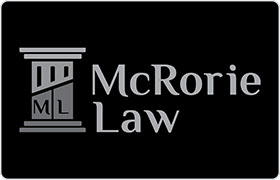Luther Child Custody Lawyer, Oklahoma
Sponsored Law Firm
-
 x
x

Click For More Info:
-
McRorie Law PLLC
2964 Via Esperanza Edmond,OK 73013» view mapFamily Law, Accidents, Wills & Trusts Oklahoma Divorce & Family Lawyer
I ensure each one of my clients is treated with the utmost dignity and respect. As part of this philosophy, I believe in transparency and honesty. I offer free consultations.
800-920-9461
Includes: Guardianships & Conservatorships, Custody & Visitation
Adam J. Holcomb
✓ VERIFIEDDivorce & Family Law, Child Custody, Child Support, Paternity, Guardianships & Conservatorships
Adam is a true trial attorney who thrives both in court and at the mediation table.
Stange Law Firm, PC
✓ VERIFIEDDivorce & Family Law, Juvenile Law, Child Custody, Prenuptial Agreements, Child Support
Here to Help You Rebuild Your Life
Going through a divorce or family law matter can be an emotional time. You may feel betrayed, lost or overwhelmed. Having an attorney that can relate ... (more)
Daniel William Keller
Corporate, Elder Law, Estate Planning, Guardianships & Conservatorships
Status: In Good Standing
Andrew Richard Swartzberg
Mediation, Child Support, Child Custody, Divorce & Family Law
Status: In Good Standing
FREE CONSULTATION
CONTACTLawrence Goodwin
Family Law, Divorce, Child Custody, Divorce & Family Law
FREE CONSULTATION
CONTACTDenielle Nichole Williams
Adoption, Family Law, Guardianships & Conservatorships, Wills & Probate
Status: In Good Standing
Denielle Nichole Williams Chaney
Adoption, Estate Planning, Family Law, Guardianships & Conservatorships
Status: In Good Standing
Sally Ketchum Edwards
Estate Planning, Guardianships & Conservatorships, Wills & Probate, Trusts
Status: In Good Standing
Paula Jo Davidson Wood
Divorce, Family Law, Guardianships & Conservatorships, Federal Trial Practice
Status: In Good Standing

 Matthew McRorie Edmond, OK
Matthew McRorie Edmond, OK About UsMatthew McRorie
About UsMatthew McRorie Contact UsCall or Email Today
Contact UsCall or Email Today


